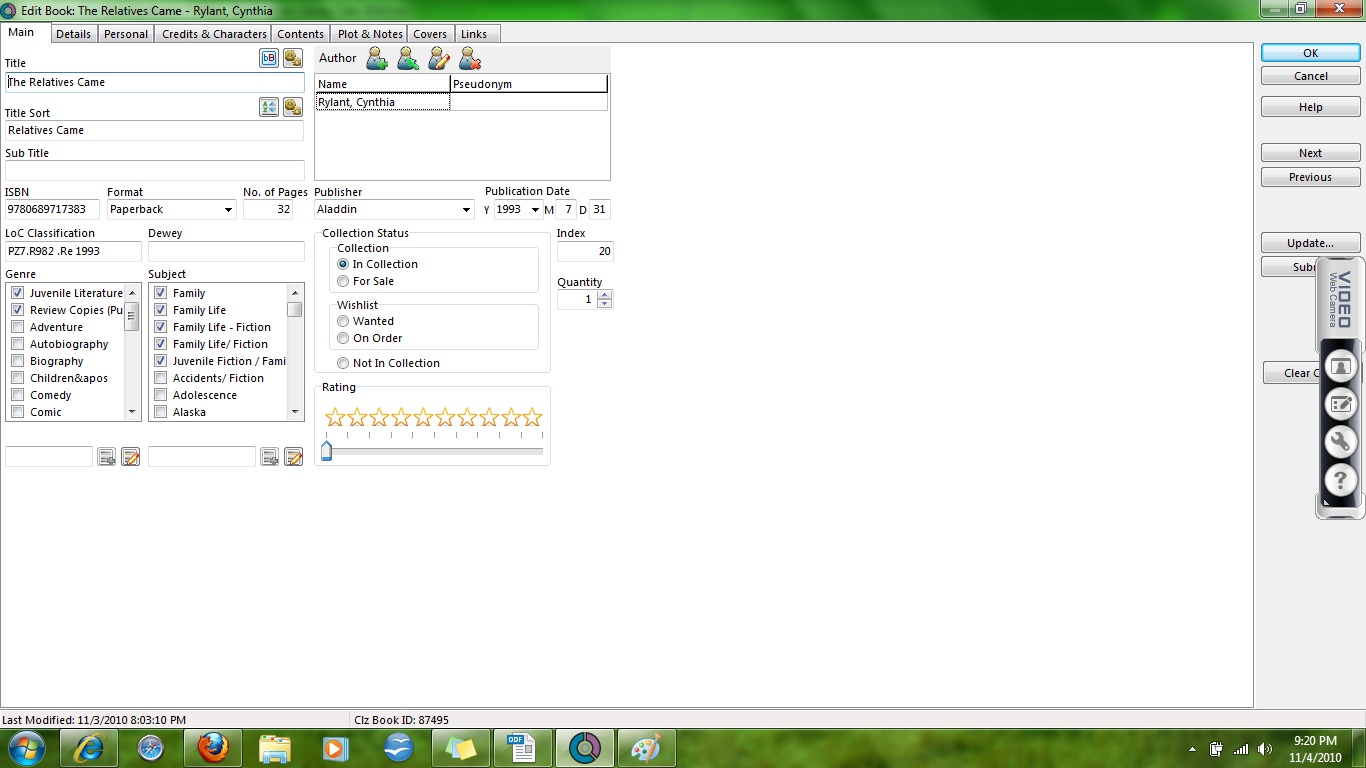

When most people think of book collecting, they think of the author collection. Here are several main routes to collection building:

You could collect every edition of Mickey Spillane's books, books with an African-American private eye, every mystery book set in Scotland. The potential topics are endless, only limited in scope by your imagination. Now enters the question of what to collect. Having a wide variety of interests makes you an interesting conversationalist, but usually not an interesting book collector. Keeping a strict focus to your collection prevents the accumulation of the unnecessary, and saves you time and money. The importance of focus in a book collection cannot be overstated. It is the collector's business to illustrate his central idea by his choice of examples, by the care with which he describes them and the skill with which they are arranged. Neither the collector nor the curator can be content to keep a mere curiosity shop. In the modern private collection, the need for a central idea must be fully recognized. Pollard wrote of book collecting in his famous essay in the 11th edition of the Encyclopedia Britannica:

A true book collection, however, must be united by a central idea.Ī.W. Books are easily accumulated and most mystery enthusiasts have a fine reading library. A creative collection idea, well-developed and well-focused, easily outstrips in personal and scholarly value a collection of expensive first editions.Īnyone can be a book collector the key is to develop an interesting focus to your collection, then follow it through. Simply not true some of the best collections are formed by people with the most limited means. Let's first rid ourselves of a prevailing notion: Book collecting is for the wealthy. Deep passion, not pockets, is the trick to building a truly well-developed personal collection


 0 kommentar(er)
0 kommentar(er)
